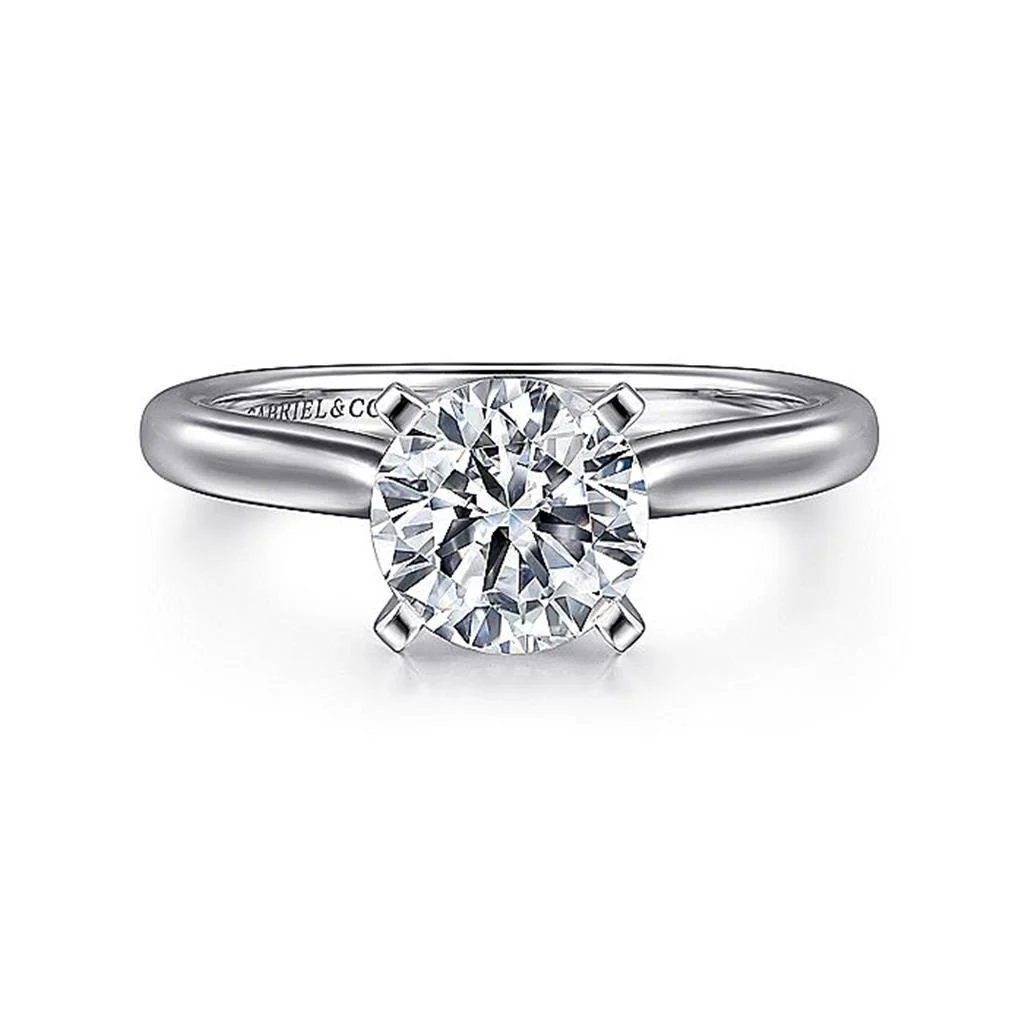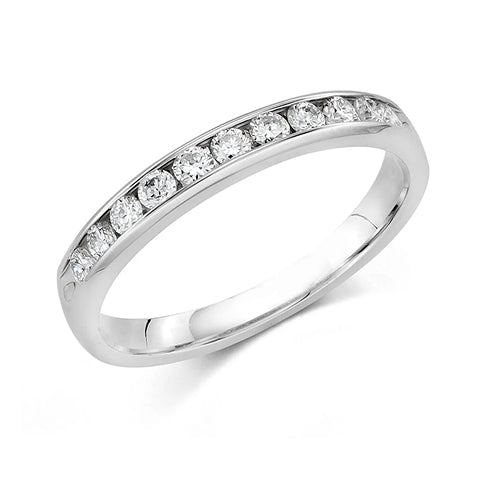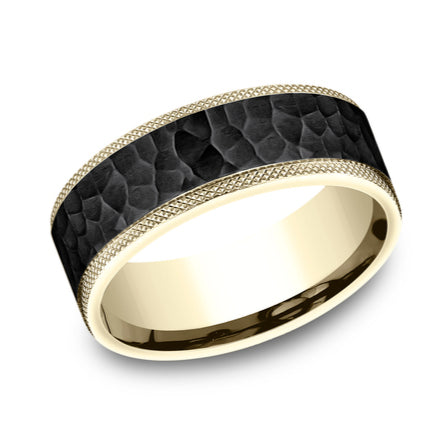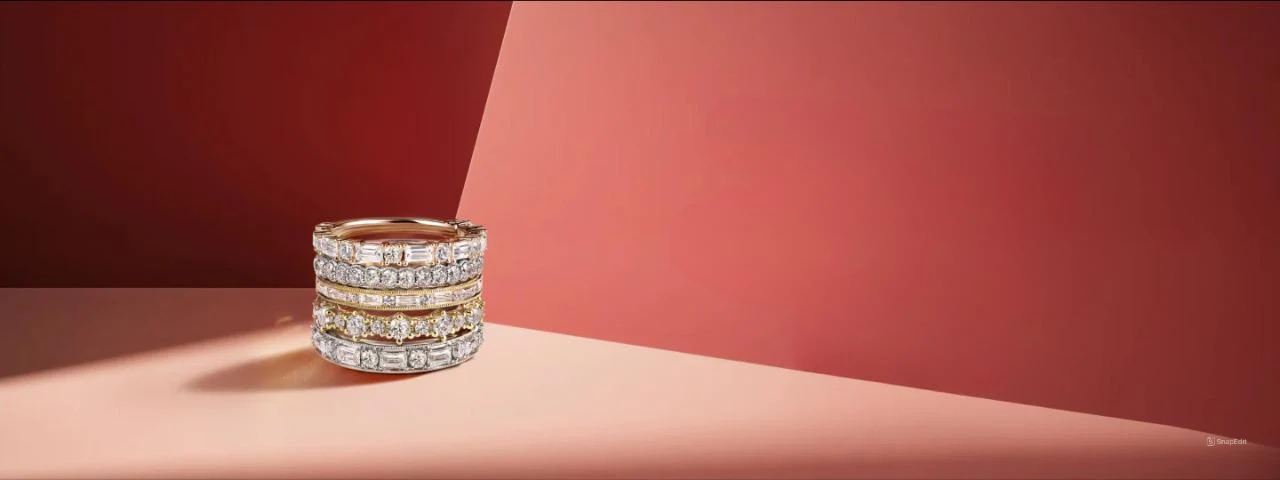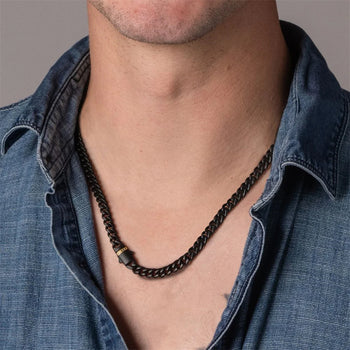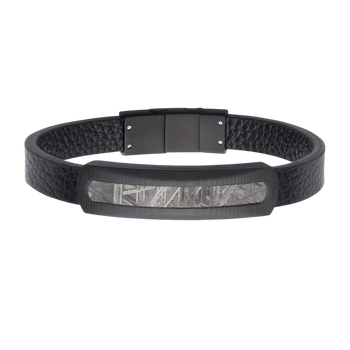
The Backstory on Black Diamond Jewelry
Black diamonds aren’t often a topic of conversation, leading some to believe that they are a myth. While black diamonds are certainly not a myth, they do come with a hint of mysticism. Depending on your cultural background or belief system, black diamonds could be considered a blessing or a curse.
An Indian fable likens the black diamond to the color of snake eyes, and had adopted the black diamond as a representation of Yama, the God of death. On the more optimistic side of the spectrum, Italian culture thinks that black diamonds are a good luck charm. Touching a black diamond is said to bring good fortune in marriage and help remedy marital woes.
Whatever lore you subscribe to, it doesn’t negate the fact that black diamonds are mysteriously alluring and beautiful to look at. They have become a popular staple in men’s jewelry, while black diamond engagement rings are starting to become a more common fixture on the hands of celebrities. One must understand what black diamonds are, and where they come from, to truly be able to appreciate them.
Start new traditions with Jeweler’s Touch. We specialize in diamond engagement rings. For the highest quality gemstones and conflict-free diamonds, call Jeweler’s Touch: (714) 868-7556
What are Black Diamonds?
Simply put, black diamonds are an amalgam of diamond, graphite and amorphous carbon. Otherwise known as ‘carbonado diamonds’, black diamonds are only found in Brazil and Central Africa. It should be noted that Brazil and Central Africa used to be adjacent to one another millions of years ago, so finding these rare gemstones in both regions today is not that surprising.
The term ‘carbonado’ was coined by Portuguese explorers that thought black diamonds looked burnt or carbonized like charcoal. Diamonds are generally mined from kimberlite deposits, whereas black diamonds are found solely in alluvial deposits.
Tougher than their sister stone, carbanods are the workhorse of the diamond family. Clocking in at a solid 10 on the Mohs hardness scale, black diamonds are widely used in machinery and as drill bits because of their strength. As you can imagine, they are extremely difficult to cut and polish because of their polycrystalline structure.
Consumers are only now showing interest in this enigmatic diamond. In the early 2000s Jewelry designers began using them to accent and showcase larger colorless diamonds, they started to grow in popularity from there.
But black diamonds had their biggest breakthrough when Mr. Big gave Carrie from Sex and The City a 5ct black diamond engagement ring. They continued to garner press when both Carmen Electra and Kat Von D openly brandished their black diamond engagement rings in public. Since then, black diamonds have been making appearances in jewelry boxes across the US.
Types of Black Diamonds
- Natural Black Diamonds - Basically, natural black diamonds are just regular colorless diamonds with high amounts of impurities in them. Whereas, traditional colorless diamonds are a single stone, black diamonds are actually held together by internal imperfections or inclusions that are made up of millions of smaller pieces. This is what sometimes gives them those pops of grey sparkles.
- Treated Black Diamonds - Treated black diamonds are the cheapest of their kind. Regularly used for industry purposes, they are not ideal for jewelry or high-end products.
- Lab-grown Black Diamonds - Now we’re talking. Lab-grown black diamonds are some of the most sought after and expensive diamonds available today. Also known as synthetic diamonds, these lab-grown black diamonds are made by a specialized process that replicates, to the last detail and element, what a real diamond is as far as composition and detail.
Start new traditions with Jeweler’s Touch. We specialize in diamond engagement rings. For the highest quality gemstones and conflict-free diamonds, call Jeweler’s Touch: (714) 868-7556
- Tags: All Diamonds Diamond Bands

